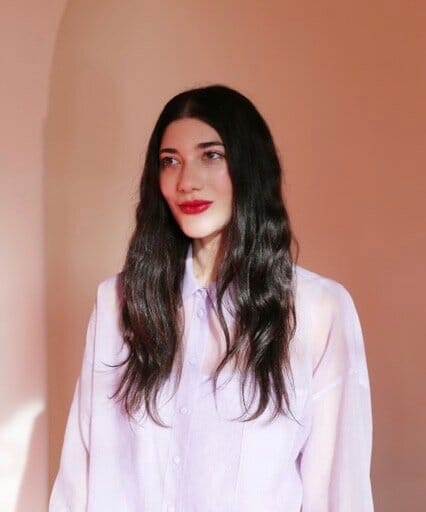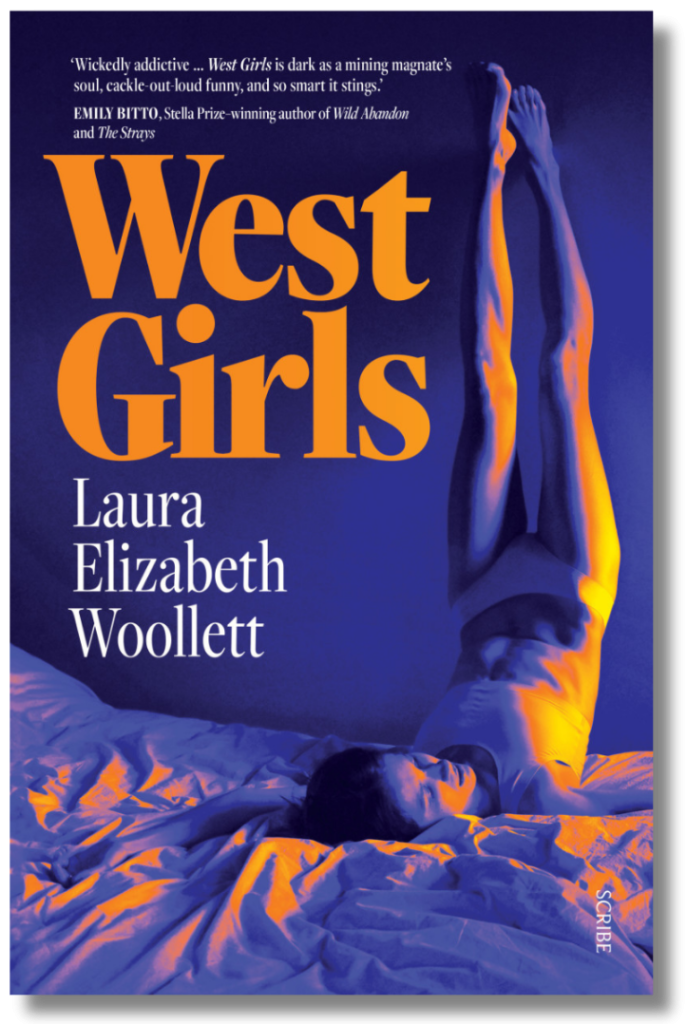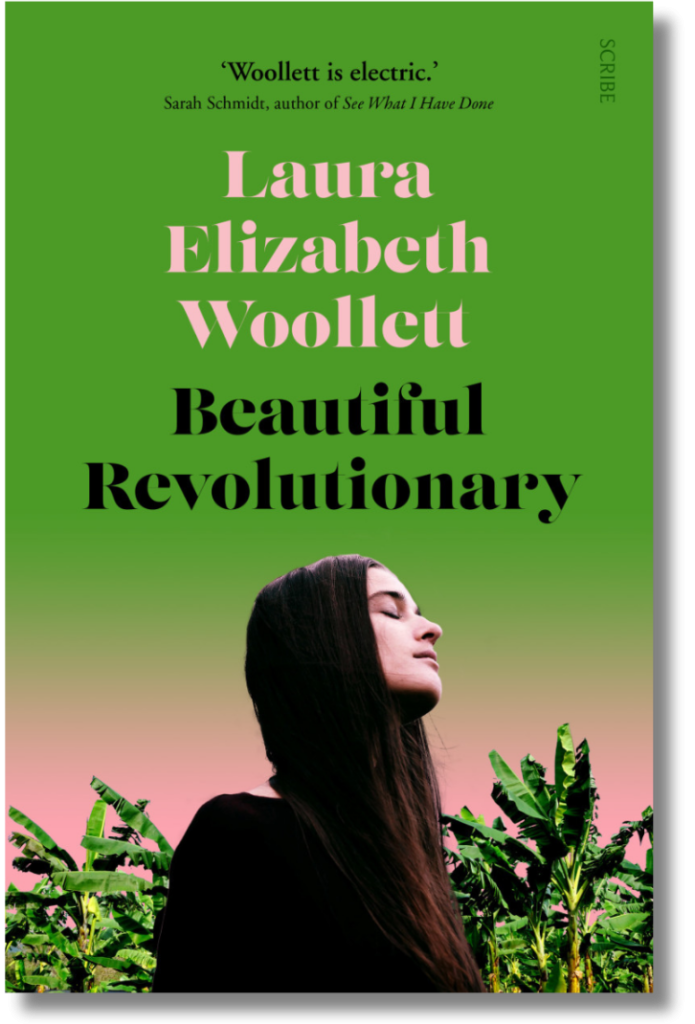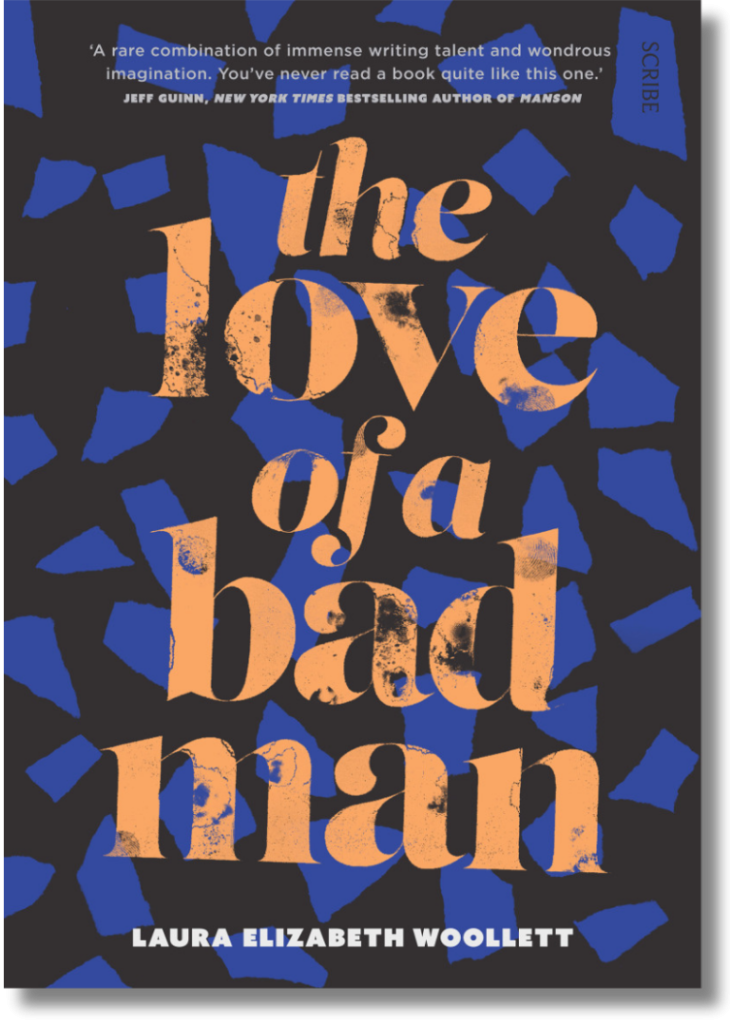
Laura Elizabeth Woollett is the author of a short story collection, The Love of a Bad Man (Scribe, 2016), and three novels, Beautiful Revolutionary (Scribe, 2018), The Newcomer (Scribe, 2021) and West Girls (Scribe, 2023). The Love of a Bad Man was shortlisted for the Victorian Premier’s Literary Award for Fiction and the Ned Kelly Award for Best First Fiction. Beautiful Revolutionary was shortlisted for the 2019 Prime Minister’s Literary Award for Fiction, the Australian Literature Society Gold Medal and the Kathleen Mitchell Award. Laura was the City of Melbourne’s 2020 Boyd Garret writer-in-residence and a 2020–22 Marten Bequest scholar for prose.
Our Marketing and Communications Officer, Sarah Giles, sat down with Laura to chat all things process, historical and archival research, and method writing.
When doing historical research, what kind of information draws you in (sidebar: what’s the most compelling/shocking/fascinating thing you have learned while researching for a project)? How do you weave those details into your work?
When researching for fiction, I’m drawn to details that tell me something about who a person was. For instance, there was an anecdote I read about Janelle Patton, the real-life murder victim who inspired The Newcomer’s protagonist, Paulina Novak. Patton had just spent the night with a man and, the next morning, borrowed his car while he was sleeping to run errands around Norfolk Island – a tiny community where everyone recognises each other’s cars. By the time he woke up, their relationship was common knowledge. I didn’t use this anecdote in The Newcomer, but it informed my characterisation of Paulina. I wanted her to be someone who refused to be treated casually or to play the ‘cool girl’.
Since I’ve done a lot of research around historical crimes, I have a bank of dark trivia. One of the most chilling things I found out during my research for Beautiful Revolutionary was about the Jonestown Death Tape – a recording made during the mass murder-suicides of November 18, 1978. At a few points, what sounds like organ music can be heard in the background. This contributed to the public perception of the victims as religious nuts who died peacefully while church music played around them. In fact, the ‘organ music’ is actually a shadow from soul music that was recorded over. The Peoples Temple often reused tapes, and often confiscated personal belongings when residents entered Jonestown. A shadow from The Delfonics’ song “I’m Sorry” can be heard pretty clearly, if you pay attention. It’s a good song. I don’t recommend listening to the tape, though.
I very much enjoyed reading The Love of a Bad Man and have a deep love for short fiction. Do you have any tips for writing quality and engaging short stories?
Be prepared to play the long-game. The stories in The Love of a Bad Man were all heavily researched, which meant I was sometimes reading several books to write a single story. Often I won’t know something isn’t ready until it’s been rejected a few times, and I begin to second-guess it. My latest book, West Girls, is a novel-in-stories. I wrote first drafts of some of these stories as far back as 2017, only to still be tinkering with them in 2022.
You have written before about being a method writer. Do you have any key advice for aspiring and emerging writers who feel drawn to that process of writing?
Method writing has been helpful for my fiction, especially when I’ve had to write around day-jobs. I worked in a call centre while writing my first three books, which obviously wasn’t very inspiring. By having rituals that made me feel closer to my characters, like listening to music they liked or dressing like them, I felt I could slip into the story more easily in my free time. Method writing isn’t part of my process for my current (nonfiction) project and didn’t play as big a role in West Girls, since a lot of that was inspired by my own memories and places I knew well. I did do a few things, though, like visiting Kalgoorlie for my story ‘Wild West’, and trying out a sensory-deprivation tank for ‘Fortress’. I don’t think method writing is a substitute for craft, or spending time on the page, and it can easily be an excuse for procrastination (e.g., “let me just make a playlist for this character before I start…”). But it keeps things interesting, which is part of why I write.
How do you generate ideas when you’re struggling get started? Or, how to you settle on an idea when you have too many?
I don’t really struggle with ideas – if I feel I have nothing to say, that’s usually a sign that I shouldn’t be writing. Actually, I have a mental library of potential novel ideas, many of them based on historical events. Recently, a novel came out (Cursed Bread by Sophie MackIntosh) that was inspired by an event I’d hoped to research and write about one day. So, sometimes the universe makes those decisions for me. I’m always collecting details with an aim to use them somewhere someday. Ideally, those details will coalesce to form a bigger picture. Until I have a character that I’m attached to, though, I find it difficult to commit to an idea, and character isn’t something I can force. When I’m not actively working on something, the most important thing is just be patient and open to influences.
You are currently working on your first major non-fiction project. Can you share a little about the work you are doing and how (if at all) your writing process differs for non-fiction when compared to fiction?
I can’t say what my nonfiction project is about, but it blends memoir, interviews, true crime, medical research and cultural analysis – so there are a few different threads to tie together. I feel like I could research indefinitely, as there are so many rabbit-holes to go down, and unlike with fiction, where I’m impatient to spend time with my characters and move their stories along, I’m mostly motivated by gaining knowledge, which is so much more nebulous. Recently, I got to a point where I had about 100 pages of notes and just thought, okay, I really need to start writing. My agent and editor both told me that finding my voice would happen once the writing started, which seems to be true. I still have research to do, but now that things are taking shape, it feels more tethered to reality.
I’ve had to navigate changing genres alongside a big life change, as my son was born in October. My process looks incredibly different to how it looked a few months ago. I have less time, in some ways. In other ways, I have loads of time, but don’t have any hands free. I’m learning to do what I can with the time and hands that I have available. Sometimes that means just thinking while I breastfeed, or reading half an article while the baby’s in my lap, or pecking a few sentences out while he’s napping. I’ve never had so many tabs and documents open at a time. About once a week, my mum takes the baby for a few hours and I’ll go work in a café. The words come easily in those hours. It’s hard not to have the same freedoms (probably harder than I realise, at this early point), but I’m also finding parenthood really generative, as it’s given me a new perspective on a lot of things – including things that my book is about.
Laura Elizabeth Woollett’s books




